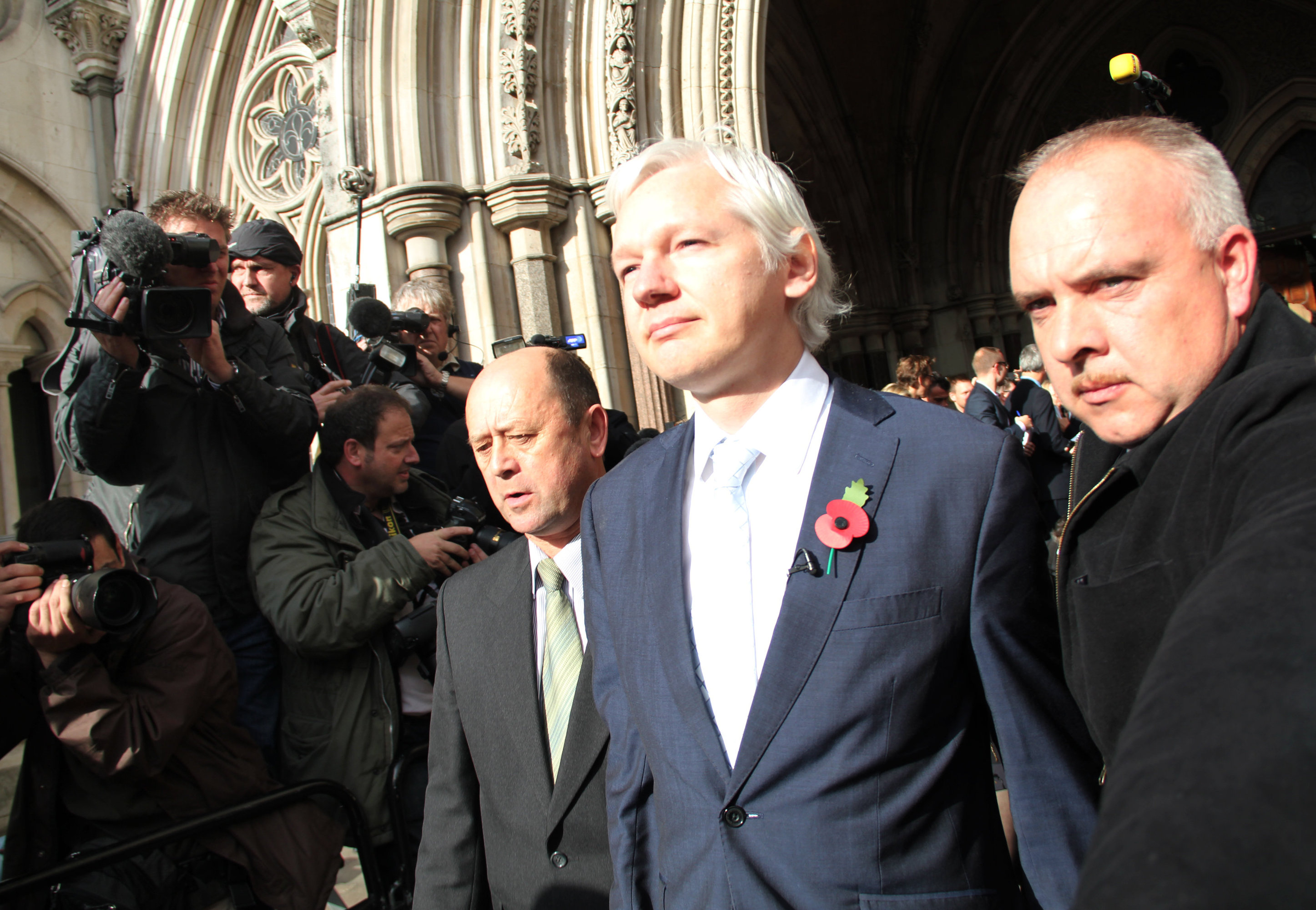MOSCOW, August 16 - RAPSI, Ingrid Burke. Following a diplomatic standoff, the government of Ecuador has announced its decision to grant asylum to Julian Assange despite the UK government’s controversial declaration that it would be legally entitled to enter the Ecuadorian embassy and physically take WikiLeaks founder into custody if a more mutually beneficial diplomatic agreement failed to be reached.
In a live televised speech delivered Thursday in Quito, Ecuadorean Foreign Minister Ricardo Patino announced: “In accordance with our policies, the government of Ecuador decided to grant political asylum to Julian Assange."
In response, the UK Foreign Office quickly issued a response stating that, “Under our law, with Mr. Assange having exhausted all options of appeal, the British authorities are under a binding obligation to extradite him to Sweden. We shall carry out that obligation. The Ecuadorian Government's decision this afternoon does not change that.”
On Thursday, UK Foreign Office spokesperson Michael Bownas provided RAPSI with a copy of the speaking note of a conversation between the charge d’affaires of the UK and Ecuador held Wednesday night in Quito. Bownas explained that the media uproar surrounding the diplomatic relations between the UK and Ecuador to the fact that the Ecuadorian government leaked portions of this very note Wednesday night.
The note conveys the UK’s shock at having discovered by way of media reports that the Ecuadorian president was actively considering granting asylum to Assange. The note emphasizes the UK’s legal obligation to arrest Assange and extradite him to Sweden, and voices concern that the president’s indecision would undermine diplomatic efforts.
Importantly, the note stressed the UK’s refusal to allow Assange to leave the country were he to be granted asylum: “we must be absolutely clear this means that should we receive a request for safe passage for Mr Assange, after granting asylum, this would be refused, in line with our legal obligations. “
The note goes on to explain that the UK would be legally justified in physically removing Assange from the premises if provoked: “You should be aware that there is a legal basis in the UK - the Diplomatic and Consular Premises Act [ed. 1987]- which would allow us to take action to arrest Mr Assange in the current premises of the Embassy. We very much hope not to get this point, but if you cannot resolve the issue of Mr Assange’s presence on your premises, this route is open to us. “
Speaking with RAPSI, Bowman reiterated the sustained efforts of the UK to reach a diplomatic solution with Ecuador over the pending asylum grant. “Throughout this process we have drawn the Ecuadorians' attention to relevant provisions of our law, whether, for example, the extensive human rights safeguards in our extradition procedures, or to the legal status of diplomatic premises in the UK.”
With regard to the note’s explanation that the UK would be legally justified in forcibly entering the Ecuadorian embassy in order to secure Assange’s arrest, Bowman explained that ““We have an obligation to extradite Mr Assange and it is only right that we give Ecuador full picture.”
To get a better sense of the present legal issues and potential ramifications involved in the situation, RAPSI spoke with international law professor Donald R. Rothwell of Australian National University. Rothwell explained that a decision by the UK government to forcibly enter the Ecuadorian embassy in order to take custody of Assange would be illegal and unprecedented.
He explained that such an incident would violate Article 22 of the Vienna Convention, which governs diplomatic relations, and that its perpetration would thus create a legal cause of action in the International Court of Justice (ICJ). He added that while Ecuador would have standing to challenge the decision in the ICJ, Assange would lack standing to challenge the act in any forum. This is due to the fact that Assange has, in fact, violated the conditions he was granted by the UK court.
Rothwell explained that while the Act referenced in the note is in force within the UK, it has never previously been enforced in a manner such as this. He added that international precedent is lacking in addition to domestic precedent: “I’m not aware of any other precedent anywhere in the world which could be equivalent to what the UK is suggesting.”
Assange, who has gained international notoriety over the years for having exposed numerous sensitive and secret documents via his website Wikileaks, is set to stand trial in Sweden for criminal offenses unrelated to his Wikileaks work. According to the UK Foreign Office, “The UK has a legal obligation to extradite Mr. Assange to Sweden to face questioning over allegations of sexual offences and we…. remain determined to fulfil this obligation.”



